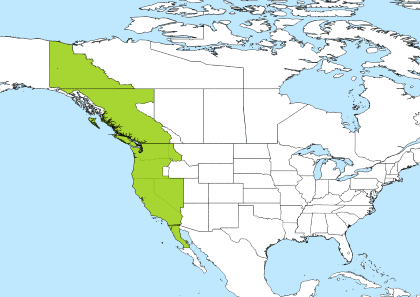PDT to HAT Converter
Time Difference
Pacific Standard Time is 5 hours and 30 minutes behind Heure Avancée de Terre-Neuve
8:00 am08:00 in PST is 1:30 pm13:30 in HAT
PDT to HAT call time
Best time for a conference call or a meeting is between 8am-1:30pm in PDT which corresponds to 12:30pm-6pm in HAT
8:00 am08:00 Pacific Standard Time (PST). Offset UTC -8:00 hours
1:30 pm13:30 Heure Avancée de Terre-Neuve (HAT). Offset UTC -2:30 hours
8:00 am08:00 PST / 1:30 pm13:30 HAT
| PST | HAT |
|---|---|
| 12am (midnight) | 5:30 am |
| 1am | 6:30 am |
| 2am | 7:30 am |
| 3am | 8:30 am |
| 4am | 9:30 am |
| 5am | 10:30 am |
| 6am | 11:30 am |
| 7am | 12:30 pm |
| 8am | 1:30 pm |
| 9am | 2:30 pm |
| 10am | 3:30 pm |
| 11am | 4:30 pm |
| 12pm (noon) | 5:30 pm |
| 1pm | 6:30 pm |
| 2pm | 7:30 pm |
| 3pm | 8:30 pm |
| 4pm | 9:30 pm |
| 5pm | 10:30 pm |
| 6pm | 11:30 pm |
| 7pm | 12:30 am |
| 8pm | 1:30 am |
| 9pm | 2:30 am |
| 10pm | 3:30 am |
| 11pm | 4:30 am |
| 0:00 | 5:30 |
| 1:00 | 6:30 |
| 2:00 | 7:30 |
| 3:00 | 8:30 |
| 4:00 | 9:30 |
| 5:00 | 10:30 |
| 6:00 | 11:30 |
| 7:00 | 12:30 |
| 8:00 | 13:30 |
| 9:00 | 14:30 |
| 10:00 | 15:30 |
| 11:00 | 16:30 |
| 12:00 | 17:30 |
| 13:00 | 18:30 |
| 14:00 | 19:30 |
| 15:00 | 20:30 |
| 16:00 | 21:30 |
| 17:00 | 22:30 |
| 18:00 | 23:30 |
| 19:00 | 0:30 |
| 20:00 | 1:30 |
| 21:00 | 2:30 |
| 22:00 | 3:30 |
| 23:00 | 4:30 |
Pacific Daylight Time
Offset: PDT is 7 hours behind Greenwich Mean Time (GMT) and is used in North America
Countries: It is used in following countries: Canada, Mexico, United States
Principal Cities: The largest city in the PDT timezone is Los Angeles from USA with population about 3.793 million people. Other major cities in the area are Vancouver, Tijuana, San Diego, San Jose
French: HAP - Heure Avancée du Pacifique
Spanish: PT - Zona Noroeste

Daylight Saving: Pacific Daylight Time (PDT) is a daylight saving/summer time zone, however during winter some places adjust time for one hour back and observe Pacific Standard Time (PST).
 End: Pacific Daylight Time (PDT) has ended on Sunday, November 2, 2025 at 2:00 am local time and clocks were set one hour back to Sunday, November 2, 2025, 1:00 am local standard time instead. Daylight saving ends annually the on first Sunday of November
End: Pacific Daylight Time (PDT) has ended on Sunday, November 2, 2025 at 2:00 am local time and clocks were set one hour back to Sunday, November 2, 2025, 1:00 am local standard time instead. Daylight saving ends annually the on first Sunday of November
 Start: Pacific Daylight Time (PDT) starts on Sunday, March 8, 2026 at 2:00 am local time and clocks are set one hour forward to Sunday, March 8, 2026, 3:00 am. Daylight saving starts annually the on second Sunday of March
Start: Pacific Daylight Time (PDT) starts on Sunday, March 8, 2026 at 2:00 am local time and clocks are set one hour forward to Sunday, March 8, 2026, 3:00 am. Daylight saving starts annually the on second Sunday of March
PDT representations, usage and related time zones
- -07 - basic short
- -0700 - basic
- -07:00 - extended
- -0700 - sign character (-) followed by a four digit time providing hours (07) and minutes (00) of the offset. Indicates seven hour and zero minutes time differences to the west of the zero meridian.
- Tango - Military abbreviation for PDT
- T - short form of 'Tango'
- America/Ensenada
- America/Los_Angeles
- America/Santa_Isabel
- America/Tijuana
- America/Vancouver
- Canada/Pacific
- Mexico/BajaNorte
- PST8PDT
- US/Pacific
- MST - Mountain Standard Time
- PDT - Pacific Daylight Time
- YST - Yukon Standard Time
- T - Tango Time Zone
Heure Avancée de Terre-Neuve
Offset: HAT is 2 hours and 30 minutes behind Greenwich Mean Time (GMT) and is used in North America
HAT representations, usage and related time zones
- -0230 - basic
- -02:30 - extended
- -0230 - sign character (-) followed by a four digit time providing hours (02) and minutes (30) of the offset. Indicates two hour and thirty minutes time differences to the west of the zero meridian.
